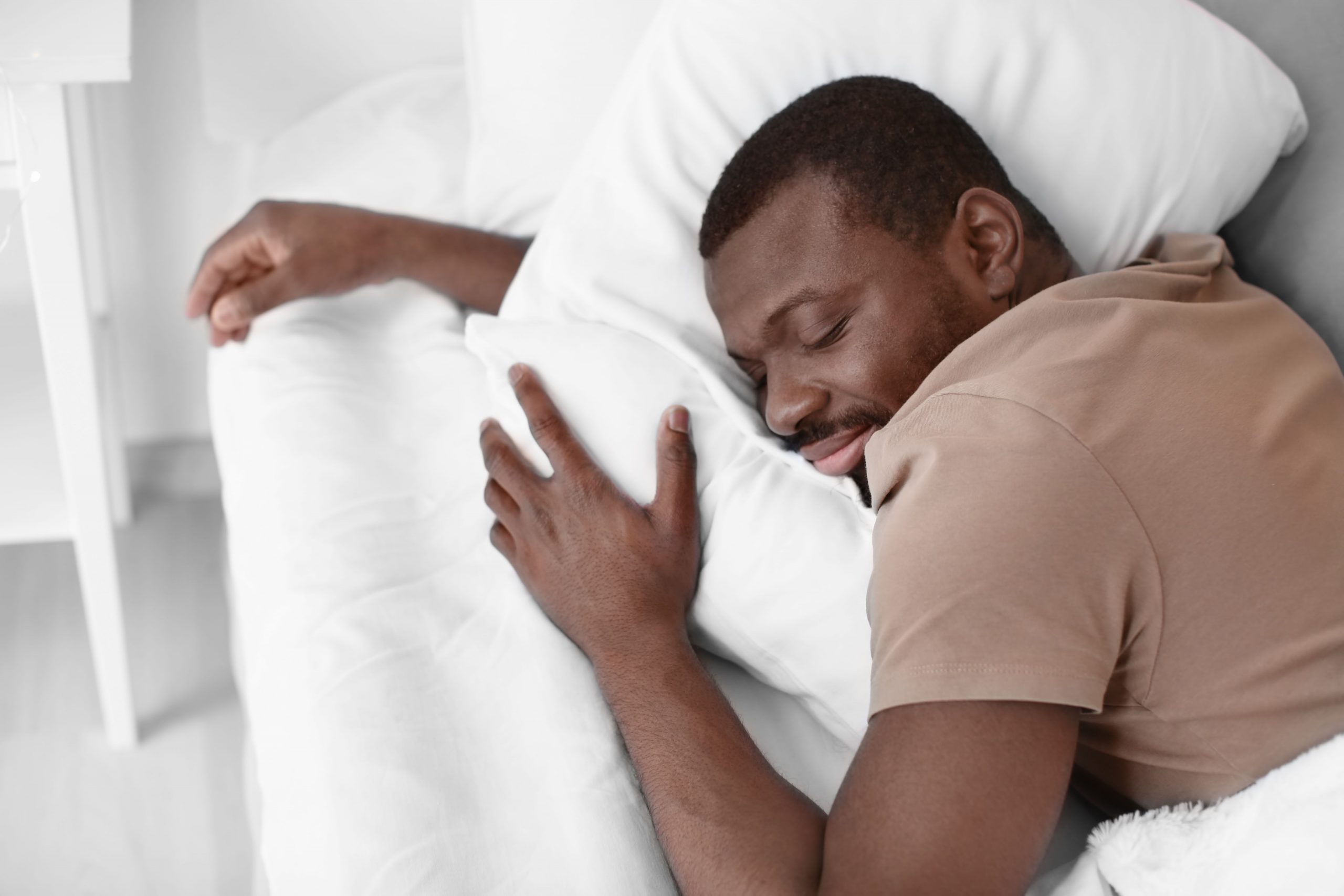You are a product of your environment. So choose the environment that will best develop you toward your objective. Analyze your life in terms of its environment. Are the things around you helping you toward success – or are they holding you back?
W. Clement Stone
If sleeping often feels like the epitome of something that’s easier said than done to you, you’ve come to the right place.
Sleeping is something that should come easily. It’s one of our most natural and most peaceful states. After all, we spent about half our time sleeping when we were babies!
But then we grew up. We started taking on new responsibilities and relationships that put a lot of thoughts into our minds. Some of which prevent us from easily dozing off when we go to bed. Combine that with the increasing presence of technology that stimulates our brain and you have the perfect recipe for sleepless nights.
Over a third of American adults don’t get the recommended amount of sleep on a regular basis.
CDC Research
Fortunately, anyone can form a new habit with enough dedication and practice. Curating a sleep wellness routine is exactly that – a habit. Treat it like any other daily routine that you know is important to your health, like exercise or eating a nutritious meal, and eventually you will achieve consistently better sleep.
Learn how to build your sleep wellness practice with our 3 simple tips below!
3 easy habits you can start practicing today for better sleep
We all understand the importance of sleep.
It goes beyond just feeling refreshed in the morning. Consistently sleeping is crucial for maintaining good overall health. Studies have shown time and time again that quality sleep:
- Boosts the immune system and prevents illness
- Improves our moods and energy levels
- Helps us maintain a healthy weight
- Increases cognitive function by improving focus and memory retention
On the other hand, consistently poor sleep can lead to detrimental neurological and physical side effects. But we’re not going to focus on those, because you might already be experiencing some of them. Instead, we’re going to tell you exactly what you can do to reap the benefits of excellent sleep.
- Reduce caffeine consumption at least 10 hours before you plan on sleeping
You’ve likely heard that caffeine makes falling asleep harder, but here’s why. Caffeine is a stimulant with a 12 hour half-life. This means that six hours after caffeine is consumed, half of it will still be in your bloodstream. Sleep experts recommend not drinking caffeinated beverages for at least 10 hours before you plan on sleeping, as this is exactly how long it takes for it to clear from your bloodstream.
We encourage you to savor your morning coffee or caffeinated tea, but switch to decaf in the afternoon. Some naturally healthy and caffeine-free beverages you can enjoy include golden turmeric chai, rooibos tea, chamomile tea, and peppermint tea.
2. Avoid blue light at least 3 hours before sleep
Blue light is another stimulant that can be difficult to avoid. It naturally emits from the sun, but our most consistent source of blue light comes from electronic devices like phone, TV, and computer screens. Start your bedtime routine by switching off your electronics. There’s a good reason that reading before bed is a time-honored way to relax the mind before bed.
Despite being a strong source of blue light, technology can actually be on your side when it comes to reducing your exposure. You can change the settings on your phone and computer to reduce blue light emissions. There are even apps that will gradually reduce blue light exposure throughout the day! Just remember that you’ll still need to switch off a few hours before bed.
3. Go to bed before midnight when possible
You might feel like you’re naturally a night owl, but evolution has your back on this one. Our internal biological clocks, or circadian rhythms, are hardwired to tell our brains that we’re ready for sleep as soon as the sun goes down. This is because humans have only been living with electricity for a relatively short period of time. Prior to the invention of indoor lighting, humans would sleep and wake based on the sun’s cycle.
Maybe you’ve heard the phrase “an hour of sleep before midnight is worth two after”, and that’s because it helps our bodies maintain a healthy sleep cycle. Our light exposure during the day regulates melatonin production, which in turn helps us fall asleep faster and reach a much-needed level of restorative sleep at night.
Don’t panic if you currently go to bed in the early hours of the morning. Setting your bedtime back several hours isn’t a task that can or even should be done overnight. Gradually change your sleep pattern by going to bed earlier by 10 minutes every night (and waking up 10 minutes earlier every morning), so that your body clock can naturally adjust.
Keep these tips in mind throughout the day, so that you can enhance your sleep and overall quality of life at night!






















0 Comments for “Back To Basics: Sleep Edition”